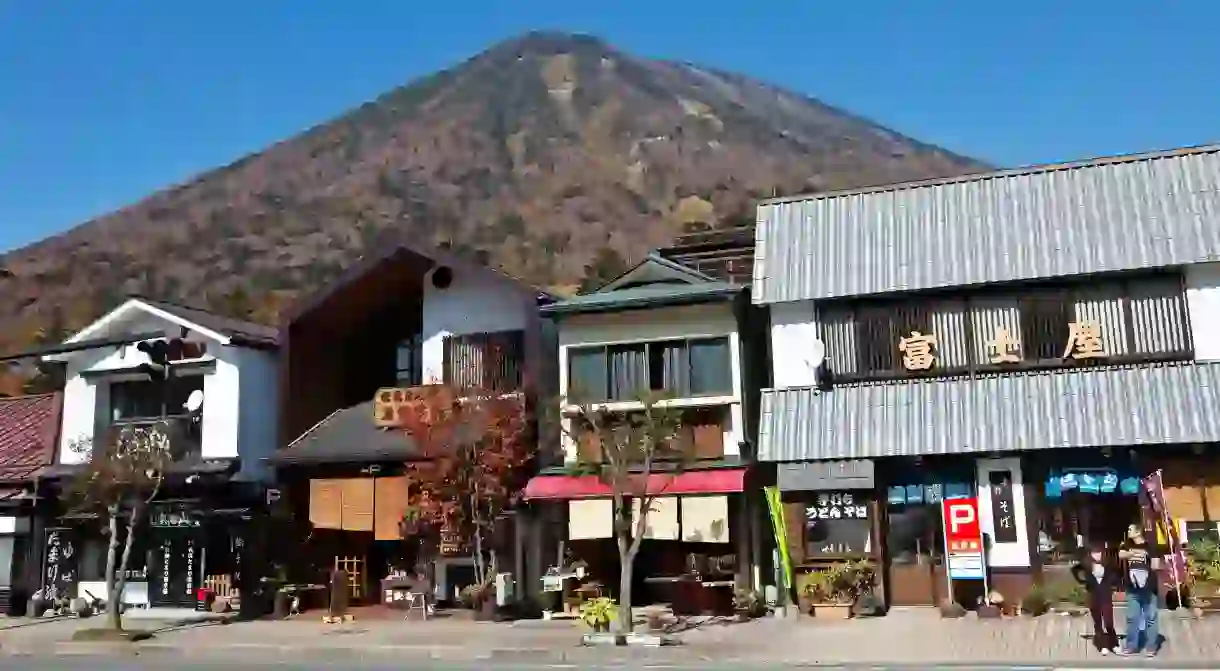The Best Restaurants in and Around Nikko

Nikko is in a picturesque corner of Japan with a food scene as rich as the town’s history. Home to wagyu beef producers, vegetarian Buddhist monks and a few sushi chefs for good measure, it’s a destination well known for its tourist attractions, but should also be admired for its culinary prowess.
Nikko’s restaurant scene is in large part inspired by its spiritual history as a centre of Buddhism and Shinto worship, while naturally abundant surrounds make it an excellent place to dive head first into Japan’s seasonal food scene.

Mountain vegetables, fresh river fish and soybean sweets – there’s something for all tastes and interests in Nikko, with enough establishments to keep you and your travelling companions well fed.
Tsuruya Yuba
Restaurant, Japanese
Komekichi Kouzushi
Restaurant, Japanese
By blending seafood dishes with distinctly Nikko features like yuba and fresh local vegetables, the team behind cosy sushi shop Komekichi Kouzushi shows that sushi isn’t just a coastal cuisine. What makes this place special is the ability to create what could be described as a type of sea-to-mountain fusion cuisine. On Komekichi Kouzushi’s menu, you’ll find mountain-grown food served using age-old sushi techniques, as well as sushi shop classics.
Nikko Kariman
Restaurant, Japanese
With its striking white and wood-panelled exterior, Nikko Kariman looks like a shop ripped straight from the streets of historical Kyoto. The store, which was founded back in 1885 (and remodelled in 2007), sells traditional Japanese sweets using Nikko soybeans as the foundational ingredient. The store’s two major stars are the soybean powder-dusted manju (a sweet little dumpling bun typically filled with a red bean paste called anko) and dorayaki (a mini pancake sandwich filled with anko). They’re both best enjoyed super fresh, so have one in-store and grab a few extras to take home.
Hippari Dako
Restaurant, Japanese
Possibly the most well-known dining establishment in the area in international circles, Hippari Dako is cheap, friendly and easily accessible for non-Japanese speakers, and serves incredibly delicious meals. Hippari Dako specialises in classic izakaya (Japanese pub) fare, like yakisoba (fried noodles) and tonkatsu (fried pork cutlet) as well as yakitori (chicken skewers) and ramen. Great for travelling groups with various tastes or dietary requirements, this cosy hangout ticks all the boxes.
Senbatei
Restaurant, Japanese
Located right on the banks of Nikko’s Kinugawa River, Senbatei is an unintentionally retro-style restaurant that specialises in fresh river fish like unagi (eel). Far more old school than some other establishments, this place isn’t for the faint of heart as one of Senbatei’s key features are the rows of impaled ayu (a sweet-tasting fish) roasting over the hot open coals. There’s no English menu, but if you go for what you think looks good, chances are you won’t do too badly.
Gyoshintei
Restaurant, Japanese
With its lush natural surroundings, Nikko has long been one of Japan’s leading centres of Shinto and Buddhist mountain worship, and it’s a rich culture that still reigns strong in the area’s culinary scene. Shojin ryori is the classic dining style of Japanese Buddhist monks, a sophisticated, seasonally influenced cuisine consisting of mainly wild mountain vegetables and pickles. Gyoshintei is a traditional shojin ryori dining destination surrounded by the forest and infused with a hint of royal luxury. If you consider yourself a foodie, then you have to try shojin ryori at least once, and this is the perfect place to do it.
Guruman’s Wagyu
Restaurant, Japanese
You haven’t really eaten beef until you’ve tried wagyu, the Japanese take on luxury steak. Juicy, refined and perfectly marbled, there are only a select few locations in Japan that have been given the tick of approval to produce this type of meat. A luxury, high-end Japanese take on the classic steakhouse, Guruman’s Wagyu serves beef sourced from locally grown cows, and its dishes could easily compete with kobe beef in terms of flavour. For the full experience, sign up for a set meal, which includes about six or seven dishes and costs – depending on the grade of beef – between ¥5,000 (£37) and ¥25,000 (£186).
Asaya Resthouse
Restaurant, Japanese
Sitting right by Shinkyo Bridge, Asaya Resthouse is a restaurant and shop that sells classic Nikko-style set-lunch dishes, with an incredible town view to match. If you’re the type of person who wants to try a bit of everything, go for one of the store’s World Heritage lunch plates – it features all the classics, from yuba and locally caught river fish to soba noodles and rice grown in Nikko’s Tochigi prefecture.
Santate Soba
Restaurant, Japanese
In Japanese, san-tei is a motto followed by the nation’s soba chefs. It means “freshly ground, freshly beaten, freshly boiled”. Freshly ground buckwheat, freshly beaten dough and freshly boiled noodles are the recipe for a perfect soba dish. Nikko soba restaurant Santate uses local buckwheat flour and the ideologies of san-tei to craft its simple (soba-only) but incredibly popular menu.













